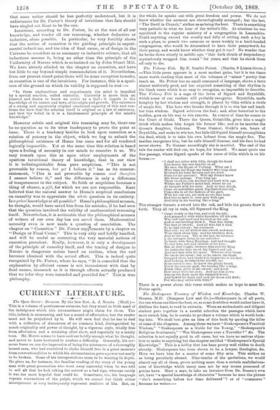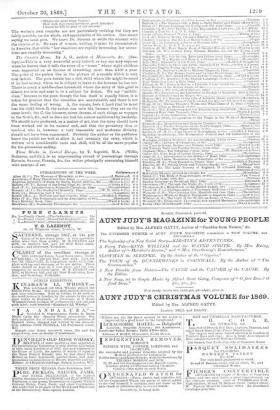The Shakespeare Treasury of Wisdom and Knowledge. Charles W. Stearns,
M.D. (Sampson Low and Co.)—Shakespeare is, of all poets, the one whom one likes the best, or, as some doubtless would rather have it, dislikes the least, to read in extracts. When an enthusiastic and diligent student puts together in a careful selection the passages which have most struck him, he is certain to produce a volume which is worth look- ing into. We shall best give an idea of this book by quoting the titles of some of the chapters. Among these we have " Shakespeare's Practical Wisdom," "Shakespeare as a Guide for the "Young," "Shakespeare's Religious Sentiments," " Was Shakespeare ever a Traveller ?" &c. The selection is not equally good in all cases, but we have no serious objec- tion to make to anything but the chapter entitled "Shakespeare's Special Knowledge." This is a hobby that has been pretty well ridden to death already. Shakespeare has been shown to be a lawyer, theologian, &c. Here we have him for a master of some fifty arts. This strikes us as being peculiarly absurd. Nine-tenths of the quotations, we would almost say all of them, prove nothing more than a certain multifarious- ness of knowledge which many men not by any means possessed of genius have. Must a man, to take an instance from Dr. Stearn's own. art, have "a special knowledge of obstetrics" because he uses the phrase "she's something before her time delivered "? or of " commerce " because he writes :—
" What's the news from Venice ?
How doth that royal merchant, good Antonio ? I know he will be glad of our success."
The writer's own remarks are not particularly striking, but they are fairly sensible, on the whole, and appreciative of his author. One smart saying we must give. We leave Dr. Stearns to settle the account with the objects of it. He says of women, writing, it must be remembered, in America, that while "her exactions are rapidly increasing, her attrac- tions are steadily decreasing."































 Previous page
Previous page